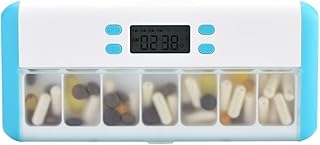Time-critical medications play a crucial role in the treatment of various conditions, from diabetes to epilepsy. These medications are essential for patients requiring urgent medical attention, as delays in administering them can have severe consequences. For instance, individuals with Parkinson’s disease or type 1 diabetes rely on timely medication to manage their conditions effectively.
A report by Parkinson’s UK revealed that only 42% of Parkinson’s disease patients in England receive their medication on time during hospital admissions. The impact of delayed medication can be traumatic for patients, hindering their recovery and leading to serious complications such as Parkinson’s Hyperpyrexia Syndrome, which can be life-threatening.
Nursing staff play a critical role in administering time-critical medications across various healthcare settings. Understanding the definitions and implications of time-critical medicines is essential for healthcare professionals. The Institute for Safe Medication Practices defines these medications as those where delayed administration can result in harm or suboptimal therapy.
Barriers to timely medication administration, such as workforce shortages and inadequate policies, can hinder patient care. It is vital for nursing staff to address any concerns regarding the mishandling of time-critical medications to ensure patient safety and uphold professional standards.
Callum Metcalfe-O’Shea, RCN Professional Lead for Long-Term Conditions, emphasizes the importance of a person-centered approach in administering time-critical medications. Collaboration with patients, relatives, and carers can enhance the medication administration process and improve patient outcomes.
Epilepsy is another condition where delays in medication can have serious repercussions, increasing the risk of seizures and potentially leading to Sudden Unexpected Death in Epilepsy (SUDEP). Similarly, sepsis requires prompt treatment with antibiotics to prevent organ failure and adverse outcomes.
Suman Shrestha MBE, RCN Professional Lead for Critical Care, underscores the significance of timely antimicrobial administration in managing sepsis. Prompt intervention and appropriate medication use are crucial in preventing complications and improving patient outcomes.
Helena Petrisor, a member of the RCN Diabetes Forum steering committee, highlights the critical role of time-critical medications in managing conditions like type 1 diabetes. Timely administration of insulin is vital in stabilizing blood sugar levels and preventing complications.
Helena’s dual perspective as a healthcare professional and a parent underscores the life-saving impact of administering medications promptly. In emergency departments, timely administration of medications for conditions like sepsis and acute asthma attacks can significantly influence patient outcomes and save lives.
As nursing staff navigate the complexities of administering time-critical medications, maintaining vigilance, and adhering to best practices are essential to ensure patient safety and optimal care delivery. By prioritizing timely medication administration and fostering collaborative relationships with patients, nursing staff can make a meaningful difference in patient outcomes and overall healthcare quality.
📰 Related Articles
- Ultrasound Revolutionizes Paramedic Care for Enhanced Patient Outcomes
- Ultrasound Pioneer Enhances Emergency Care for Improved Patient Outcomes
- Surrey Memorial Hospital Transforms Patient Care with Point-of-Care Ultrasound
- Sonographer Ashley Campbell Honored for Exceptional Patient Care
- Researchers Develop Safer, High-Res Ultrasound Imaging for Critical Care






